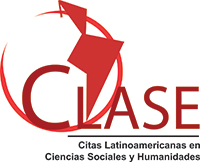Kant sobre a vontade: a influência luterana
DOI:
https://doi.org/10.15448/1984-6746.2015.3.24291Palavras-chave:
Kant, vontade, poder constituído por norma, concupiscência, luteranismo.Resumo
A vontade racional (e a sua atividade como vontade pura) é a faculdade investigada por Kant na sua Metafísica dos costumes. Neste artigo, procuro esclarecer a concepção que Kant tem dessa faculdade, isto é, como um poder causal constituído por uma norma. Para tanto, são analisados três textos-chave de Kant. A comparação com a posição luterana sobre a concupiscência sugere uma forte influência dessa posição sobre a concepção kantiana da vontade.
Downloads
Referências
ALLISON, Henry. Kant’s Theory of Freedom. Cambridge: Cambridge University Press, 1990.
BECK, Lewis W. A Commentary on Kant’s Critique of Practical Reason. Chicago: The University of Chicago Press, 1960.
CRUSIUS, Christian. A Guide to Rational Living (Psychology: Chapter 1: Of Goals and of the Human Will). In: SCHNEEWIND, J. (ed). Moral Philosophy from Montaigne to Kant. Cambridge: Cambridge University Press, 2003. p. 569-584.
ENGSTROM, Stephen. The Form of Practical Knowledge. A Study of the Categorical Imperative. Cambridge, Mass.: Harvard University Press, 2009. DOI: https://doi.org/10.4159/9780674053793
FLIKSCHUH, Katrin. Kantian Desires: Freedom of Choice and Action in the Rechtslehre. In: TIMMONS, Mark. Kant’s Metaphysics of Morals. Intepretative Essays. Oxford: Oxford University Press, 2002. p.185-207.
FRANKFURT, Harry. Freedom of the Will and the Concept of a Person. In: IDEM. The Importance of What We Care About. Cambridge: Cambridge University Press, 1998. p. 11-25.
HERMAN, B. Bootstrapping. In: EADEM. Moral Literacy. Cambridge, Mass.: Harvard University Press, 2007. p. 154-175. DOI: https://doi.org/10.2307/j.ctv22jns5h.10
______. Obligatory Ends. In: EADEM. Moral Literacy. Cambridge, Mass.: Harvard University Press, 2007. p. 254-275. DOI: https://doi.org/10.2307/j.ctv22jns5h.14
______. Rethinking Kant’s Hedonism. In: EADEM. Moral Literacy. Cambridge, Mass.: Harvard University Press, 2007. p. 176-202. DOI: https://doi.org/10.2307/j.ctv22jns5h.11
______. The Will and Its Objects. In: EADEM. Moral Literacy. Cambridge, Mass.: Harvard University Press, 2007. p. 230-253. DOI: https://doi.org/10.2307/j.ctv22jns5h.13
HOUAISS, A. Dicionário Houaiss da Língua Portuguesa. Rio de Janeiro: Editora Objetiva, 2001.
HUME, David. A Treatise of Human Nature. Oxford: Oxford University Press, 1978.
______. Tratado da natureza humana. Tradução de Deborah Danowski. São Paulo: Unesp, 2000.
KANT, Immanuel. Grundlegung der Metaphysik der Sitten. In: IDEM. Gesammelte Schriften, Berlin: Akademie der Wissenschaften, Band IV, 1911.
______. Fundamentação da metafísica dos costumes. Tradução de Guido A. de Almeida. São Paulo: Barcarolla – Discurso, 2009.
______. Kritik der praktischen Vernunft. In: IDEM. Gesammelte Schriften. Berlin: Akademie der Wissenschaften, Band V, 1913.
______. Crítica da razão prática. Tradução de Valério Rohden. São Paulo: Martins Fontes, 2002.
______. Critique of Practical Reason. In: The Cambridge Edition of the Works of Immanuel Kant – Practical Philosophy. Transl. Mary Gregor. Cambridge: Cambridge University Press, 1996. p. 135-271.
______. Die Metaphysik der Sitten. In: IDEM. Gesammelte Schriften. Berlin: Akademie der Wissenschaften, Band VI, 1914.
______. A metafísica dos costumes. Tradução de Edson Bini. São Paulo: Edipro, 2008.
______. The Metaphysics of Morals. In: The Cambridge Edition f the Works of Immanuel Kant – Practical Philosophy. Transl. Mary Gregor. Cambridge: Cambridge University Press, 1996. p. 365-603.
KENNY, Anthony. The Metaphysiscs of Mind. Oxford: Oxfrod University Press, 1992.
LONGUENESSE, Beátrice. Kant on the Human Standpoint. Cambridge: Cambridge University Press, 2005. DOI: https://doi.org/10.1017/CBO9780511487279
LUTHER, Martin. A Commentary on St. Pauls Epistle to the Galatians. In: DILLENBERGER, John (ed.). Martin Luther – Selections from his Writings. New York: Anchor Books, 1962. p. 96-165.
______. Bondage of the Will. In: DILLENBERGER, John (ed.). Martin Luther – Selections from his Writings. New York: Anchor Books, 1962, p. 166-203.
MELANCHTHON, Felipe. Apologia da Confissão de Augsburgo. In: Livro de Concórdia – As Confissões da Igreja Evangélica Luterana. Tradução de Arnaldo Schüler. São Leopoldo: Editora Sinodal e Editora Concórdia, 1997. p. 95-304.
WOOD, Allen W. Kant’s Ethical Thought. Cambridge: Cambridge University Press, 1999.



















